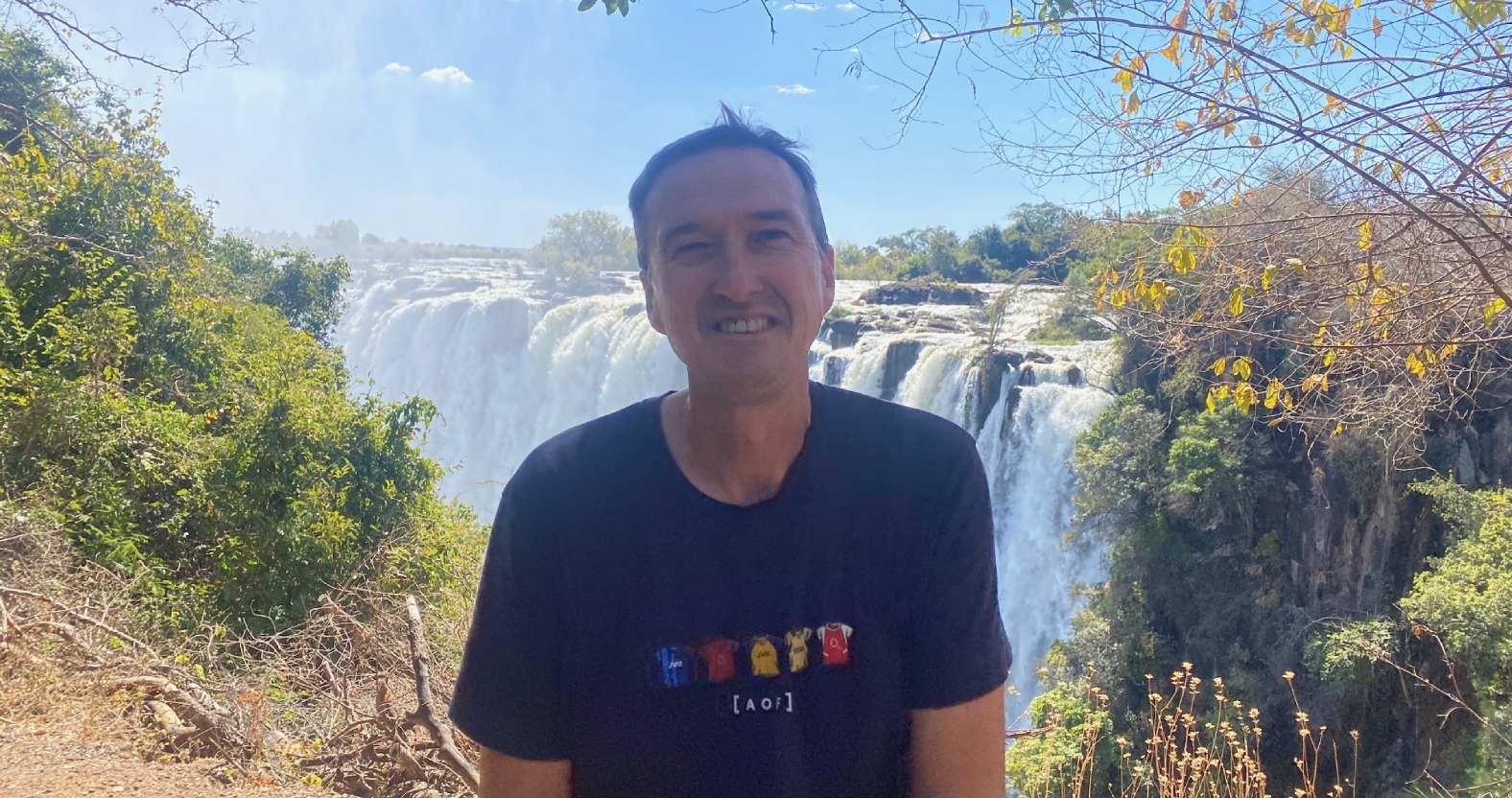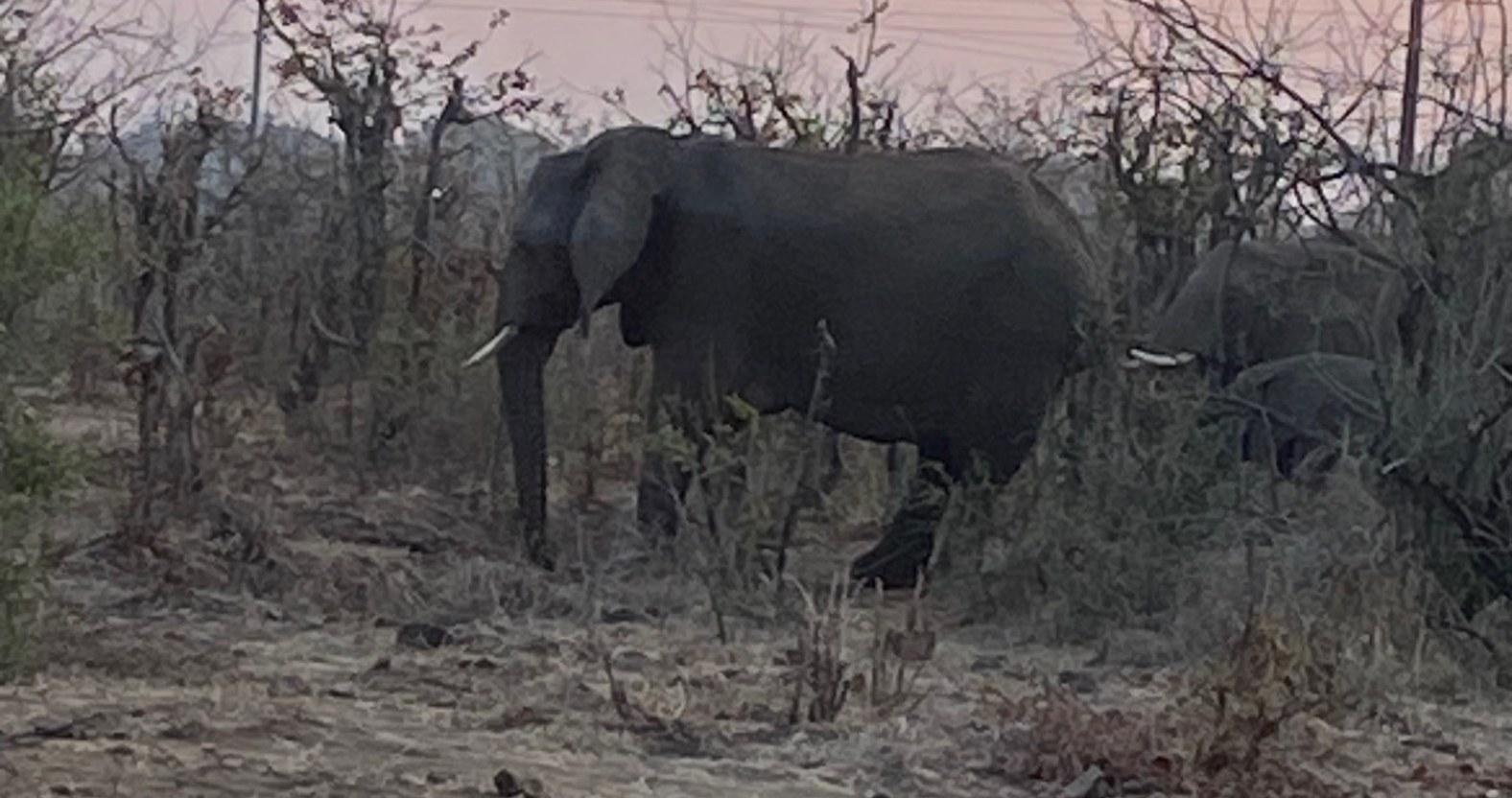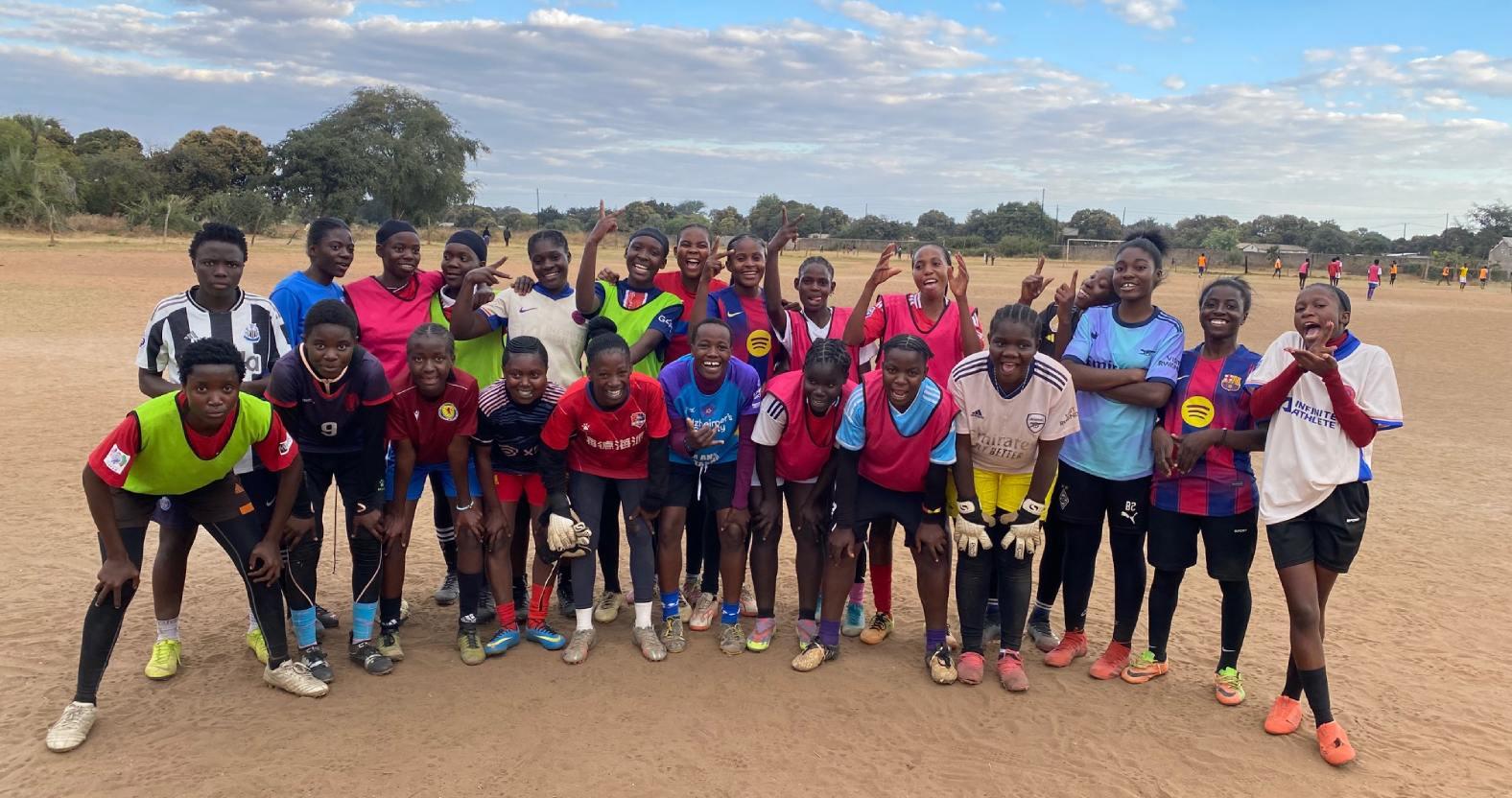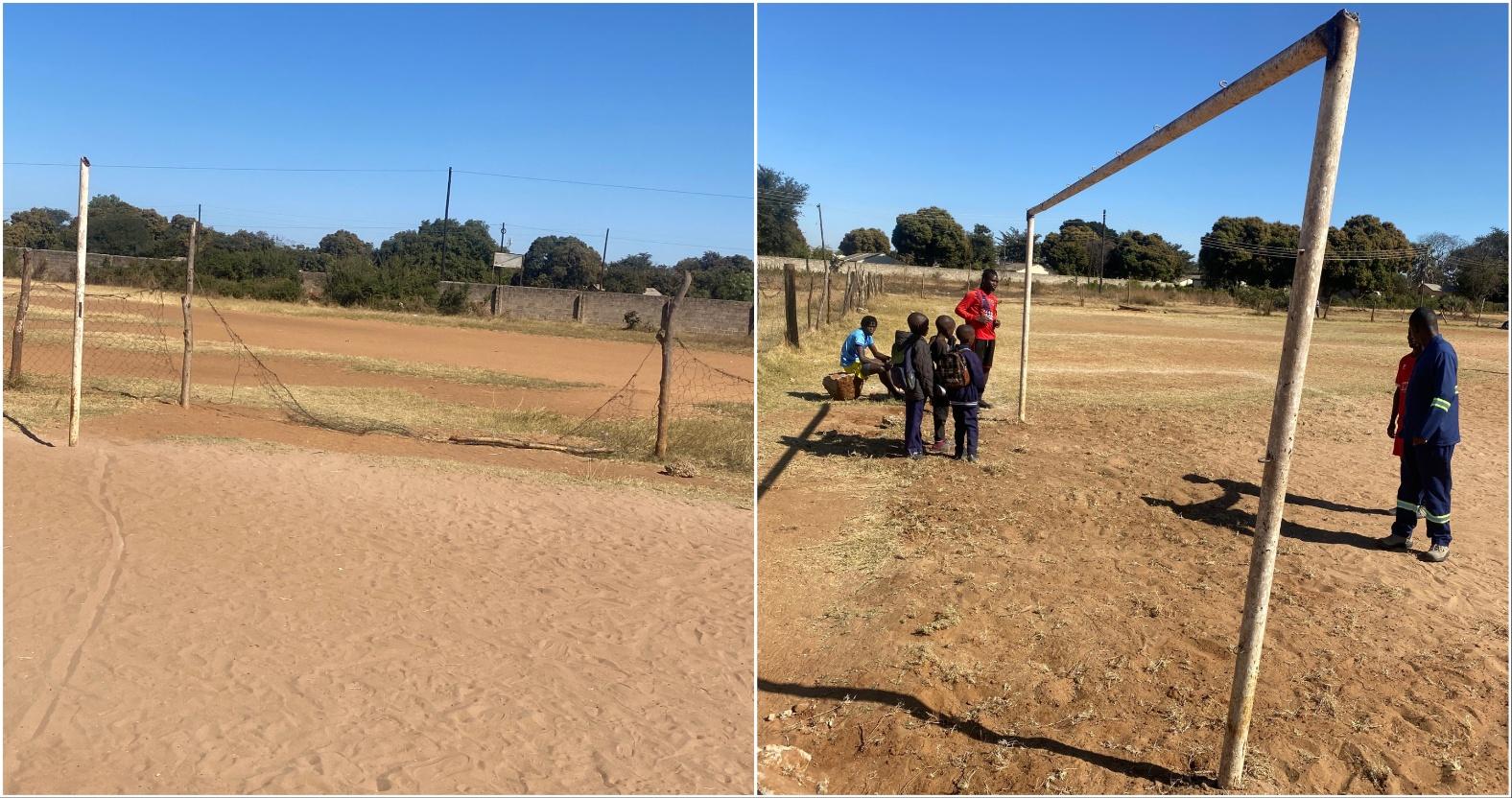Subscribe to trusted local news
If you are accessing this story via Facebook but you are a subscriber then you will be unable to access the story. Facebook wants you to stay and read in the app and your login details are not shared with Facebook. If you experience problems with accessing the news but have subscribed, please contact subscriptions@thestrayferret.co.uk. In a time of both misinformation and too much information, quality journalism is more crucial than ever. By subscribing, you can help us get the story right.
- Subscription costs less than £1 a week with an annual plan.
Already a subscriber? Log in here.
12
Oct 2025
'Elephants broke our goalposts' – the unusual life of a freelance football coach

This article is the first in a series by contributor Paul Wade.
"Coach Neil, sorry to disturb you, but I think you should know. A herd of elephants has just trampled the goalposts. Kick-off is in four hours."
This was the situation faced by professional football coach Neil Harvey during his first week of a four-month voluntary assignment in Zambia.
Neil, who recently returned from the trip, told the Stray Ferret:
It was a new one on me. You don’t need to be [Manchester City coach] Pep Guardiola to know that no goalposts equals 'match abandoned', so as our opponents had been on the road for hours and were about to arrive, emergency action was required. But exactly what, I wasn’t completely sure!

Some of the culprits.
But how does someone who lives in Bishop Monkton find himself dealing with chaos caused by elephants in rural Africa?
Neil started off by graduating in Human Movement Studies at St Mary’s University in Twickenham – the first stage in becoming a sports teacher – and then completed a PGCE teaching qualification.
To pay his way through university, he sold programmes pre-match at a number of London football clubs, including Chelsea. It was, he said, easy enough, unless Leeds United were in town.
He said:
Selling spots at Chelsea were allocated on a first-come first-served basis. The earlier you got there, the better the spot. The last ones to arrive had to sell programmes to the visiting fans.
When Leeds were playing Chelsea at Stamford Bridge, all the programme sellers arrived at the stadium at the crack of dawn, because absolutely no one wanted to be in the away end. You needed a West Yorkshire accent to say anything, even ‘That will be 20p please’. It was pretty scary stuff!

Young Zambian footballers.
In his first year at university Neil also completed the FA preliminary coaching course, which meant he could coach at grassroots level, and in his first long summer holiday embarked on the first of seven tours of the United States to do just that.
He said:
Every week, the organisation I worked for used to send us to a different part of the US to run skills and coaching courses for youngsters. My first assignment was in Atlanta and the following week was a 12-hour drive away in Pennsylvania! We drove those long distances every week, but it was a great way of seeing the States – especially if you are in your early 20s.
After university, Neil and his wife Liz (an artist and art tutor who now runs a successful studio in Grewelthorpe) then worked in international schools all around the world, including spells in Cairo and Kuala Lumpur.
But it was the community football schemes, often sponsored by major clubs as part of their outreach programmes, which really grabbed his imagination. As a freelance coach, he was asked in 2007 to open a soccer school in Toulouse, South West France on behalf of Arsenal FC, who then suggested further opportunities, in Berkshire and Bahrain.

Pitches in Zambia can vary in quality.
Neil said:
These programmes are not about unearthing the next generation of star footballers, it is more fundamental than that.
Having worked in many parts of the world, I can tell you that the language of football is the same, whether you are in North London or Southern Zambia. Young people of any age just enjoy the basic processes – warm-up, skills practice and a game. Once engaged, they love it.
The love of the game and the promise of great rewards are what attract young players the world over, but for some in developing countries, the dream can turn sour.
Neil said:
Football has done some terrible things in Africa. So-called ‘agents’ have recruited young boys to Europe for ‘trials’ with major clubs, so they get on a plane to a strange country and frequently end up with no trial and a very dubious future. Many have been trapped, and some finish up sleeping on the streets of cities like Paris.
Neil went to Zambia for a charity called Play it Forward, building on previous assignments he undertook for other organisations in Ethiopia and Uganda.
He said:
The great thing about running a community football programme is that it is less about improving skills and more about teaching the language of sport. Players learn the practicalities of teamwork, organisation and application – all key life skills – and for many, that represents a way forward in a very tough world.
In Zambia, where half of the population is aged 15 or under and where the gap between the rich and poor is huge, we are trying to equip these young people with the confidence they need to help them move forward positively with their lives.
This is what makes running these programmes so worthwhile. They give both students and future coaches the tools so that they can generate their own confidence and self-belief, giving them real hope in life.

Left: the broken goalposts. Right: the same goalposts four hours later, after a visit from a welder.
Helping young people to realise their potential is often just a matter of giving them the skills and pointing them in the right direction, and in Zambia, it seems Neil's efforts have not been in vain. In fact, nothing will stop his students playing football now – not even elephants.
But how did Neil ensure that that visiting team hadn't had a wasted journey, and that the match went ahead?
He said:
Not only does it turn out that Zambia has some handy footballers, they have a very nifty crop of welders too!
0